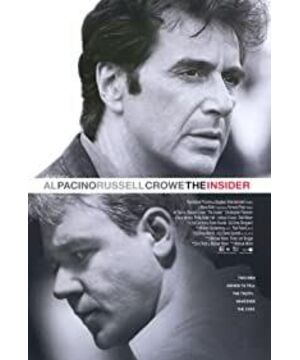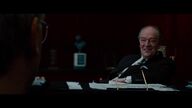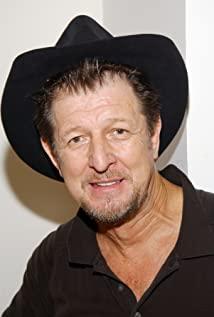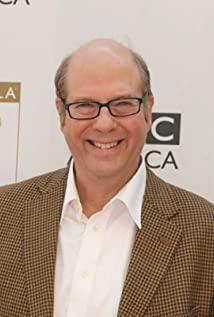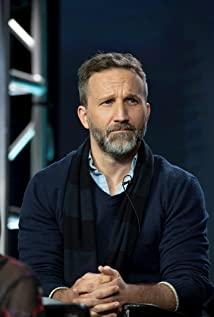The rhythm of the first half of the movie is surprisingly slow, and it should be because there are not so many details in the classroom that I almost fell asleep in the middle. The plot of the film is developed by a series of comparisons. Lowell, as a producer and his successful news talk show "Sixty Minutes", took the lead in appearing. focus on. On the other side of Lowell's glory days, Wigand, a tobacco company scientist, was fired amidst the roar of his colleagues outside the house. At this time, Lowell got acquainted with Wigand who was at a low point because he had to interpret an internal tobacco-related information provided by an anonymous person. Just like the "we're on" that Lowell said at the beginning, a paragraph about two Thus began the story of the fate of men.
Although the entire film revolves around a story about "nicotine harms health," it's clear that things won't be that simple. As a very Oscar-competitive work, a theme of sufficient depth is indispensable. Behind the content of this news report, there are social issues such as the media, monopoly enterprises, freedom of speech, etc., and these issues are manifested through groups of conflicts.
In my understanding, Lowell as a producer is a heroic journalist. Convince the interviewee to overcome the resistance to record the program, but at this time, there is a huge obstruction from the Trust Tobacco Company. The conflict between the monopoly and the media is the contest between the two forces in the film. Tobacco companies have the power to manipulate everything, and their legal departments are clearly not going to give up on revealing their nefarious secrets. Rather, the reason for such a high-sounding reason for defending the public's right to know is that Lowell's reason for resisting so much is actually his own. Some people say that people of faith are omnipotent. Perhaps only from this perspective can we understand the spiritual basis of Lowell's fighting like a knight. What is journalistic autonomy, as it says in the video? You can only negotiate if you keep the company. Hey, wait, what about press freedom? Hehe, at this time, it might just be a "bullshit" from Lowell. It turns out that the freedom of the press for US imperialism is not as good as it seems.
For the public value of human beings, the freedom of the press has an unusually important position. Since the Revolutionary War, freedom of the press has been regarded by the United States as the most important constitutional value and constitutes the cornerstone of its so-called constitutional government. Thomas Jefferson, the drafter of the Declaration of Independence, declared: If I were to decide whether there should be a government and no newspapers, or a newspaper and no government, I would choose the latter without hesitation. But in the film, we clearly see the absurdity of the capitalist trust enterprise. As a monopoly industry, the "kinship" of the tobacco industry is essentially a chain of commercial interests that harms fair competition in the market and does not see the light of the sun. They use various means to threaten and intimidate, cover up the facts, and prevent the parties from telling the truth. all over the world. The freedom of the press, which seems so beautiful, is still dominated by interest groups. The so-called gatekeepers and agenda setting are still tools for monopoly interest groups to safeguard their own interests. In the face of money, no matter how noble the freedom of the press is, they must bow down. So we still have to say that the freedom of the press in the United States belongs to monopoly groups, to the bosses, not to the front-line journalists.
Back to the film itself, the most impressive scene in the film occurred after Wigand testified in court. In court, a generous statement from the plaintiff's lawyers and a berating of the defendants' Brown & Williams representatives gave the mostly depressing film a little pleasure. The most touching set of sound and picture is at night, after the court hearing of Lowell and Wigand, the house is brightly lit. The two stand outside the window holding red wine glasses. What can be seen is that the two looked at each other in silence and smiled, like confidants, with a meaning of "you know". At this time, the music recalled at the right time, and it was surprising that this was actually a symphony like an epic soundtrack, which made this laugh tragic and emotional without saying a word.
It is worth mentioning that the film uses "white space" in the sound. The first time was when Wigand left the company. Colleagues outside the house were talking about topics of interest. It was very lively, and the silence inside the house was scary. In many of the shots since then, especially those with Wigand, there's this silence. In contrast to the hustle and bustle, his quietness seems to be in another world, just like the character Wigand himself, with white hair, gold-rimmed glasses, a slightly fat body, and a typical American middle-class appearance, and it is such a man. An ordinary person who can even be copied in image, just because he told the truth of the matter, his favorite wife and daughter left him, and his life was in another world. The image of such an ordinary person brings a strong sense of substitution. This person can be you, me, or anyone around you. However, if it is you, you will ask yourself when you lose everything like Wigand, and you will still say " Is it worth" two words?
At the end of the film, when all the truth is revealed and the light of justice shines in, director Michael Bay still gave us a happy ending, that is, Lowell is no longer silent and takes the initiative, and Wigand, who has been banned, can finally see himself in the movie with his daughter. Speaking on TV, it was the public outcry that cost the tobacco companies. Perhaps, when everyone is no longer silent, we can still see a little hope in the world.
View more about The Insider reviews


